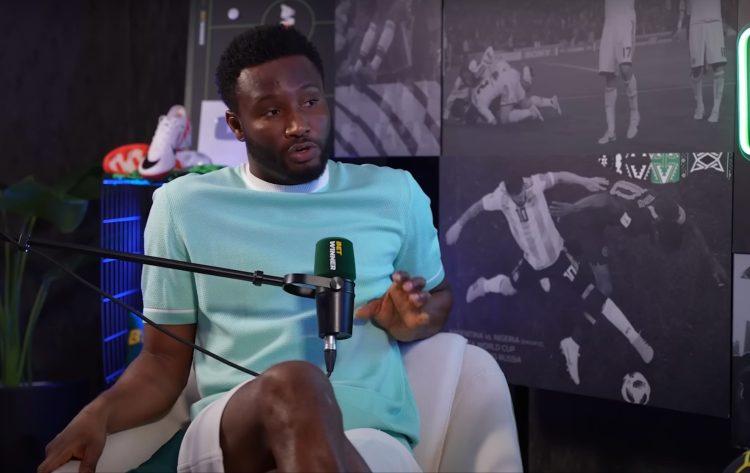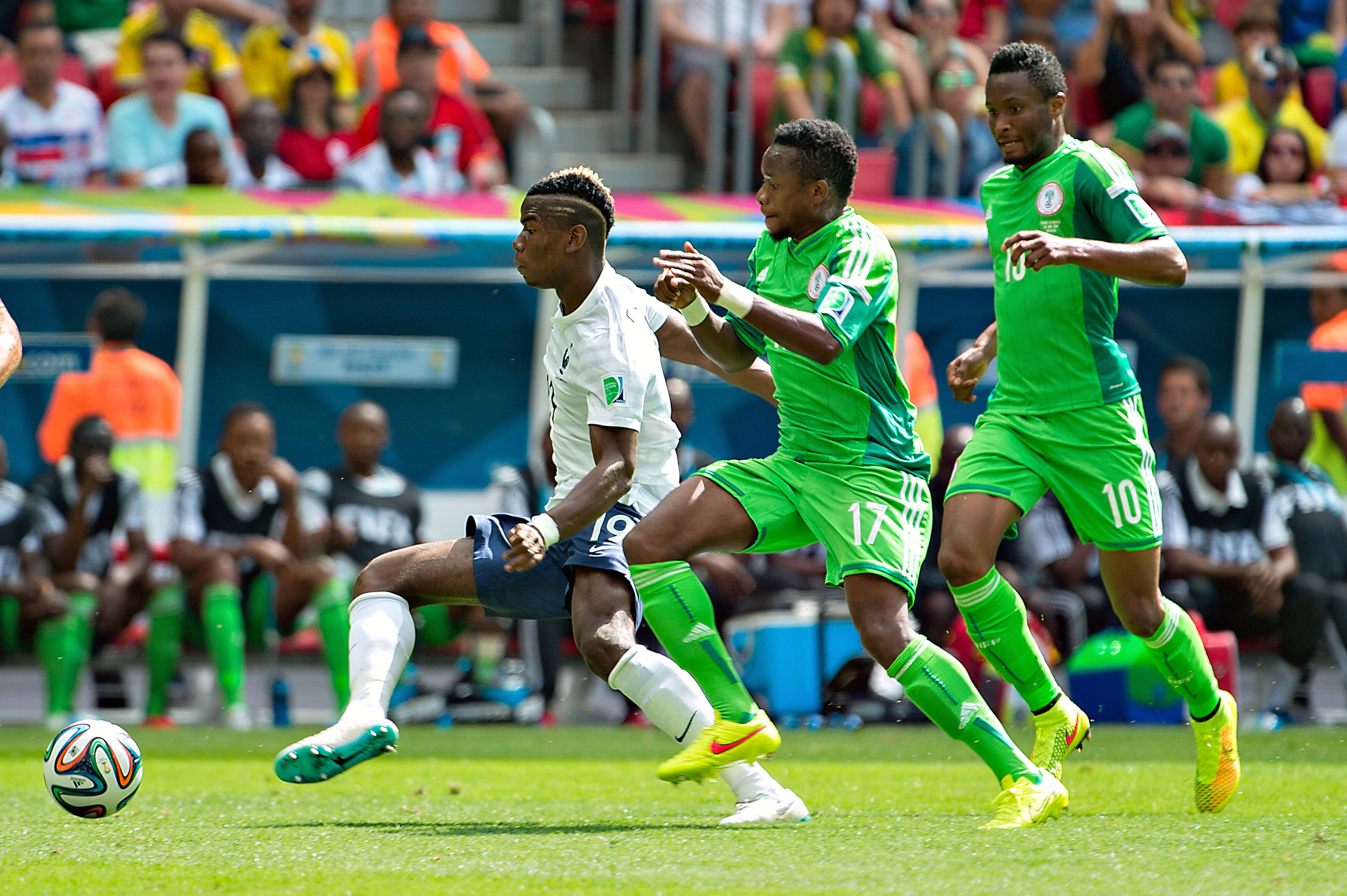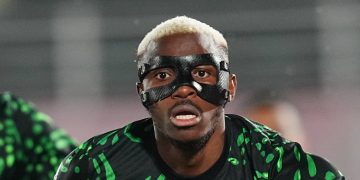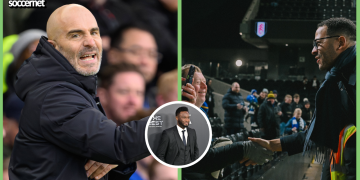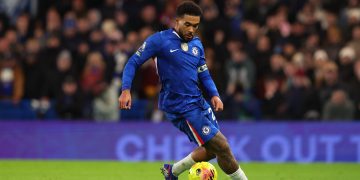John Obi Mikel spent his career avoiding the press. The Nigerian sports media hated him for avoiding interviews to the local press. He led his Super Eagles teammates in silent walk-throughs in the mixed zone after matches to punish the media for inaccurate reportage. The boys did not even speak to the media after the victorious 2013 Africa Cup of Nations final game against Burkina Faso in Johannesburg.
Yet, here we are, a decade later, and Mikel has transformed into one of the top voices in football podcasting. After hanging up his boots, he’s picked up a microphone and is giving the press boys a run for their money. He delivers exclusive interviews and drops quotable quips, calling out his former coaches and riling up current footballers like Chelsea’s Nicolas Jackson with his scathing criticism.
Get Our Sports News First – Join Our WhatsApp Channel Now!
Last week, he was in Istanbul to interview Victor Osimhen at Galatasaray and Jose Mourinho at Fenerbahce. He is so good that he gets the red carpet treatment at clubs as he fronts the successful Obi One Podcast. He gets the access that traditional journalists never get, calling into old teammates and reliving locker room exclusives that bring life to the conversations.
Sieh dir diesen Beitrag auf Instagram an
A shy guy?
How did such a polarizing media figure come to have one of the most quoted podcasts in football?
Mikel hardly spoke to the media, which felt arrogant and pompous. However, I had two exclusives with him and realised he liked things to be done properly. We sat by the pool at the Presidential Hotel in Port Harcourt once and another in Kaduna.
People who had met him outside of the pitch said he was a shy guy, had nothing much to say and wanted to live a private life as much as possible.
He avoided scandals and offered as little glimpse into his life as possible until, much later in his career, he opened an Instagram account and began posting pictures of his family life and his growing twin girls.
Football brought Mikel fame in the mid-2000s when he charmed everyone with his impressive performances at the 2005 FIFA U20 World Cup. His sublime passing and creativity saw Nigeria reach the final, where they lost to Lionel Messi’s magic. However, he finished with the individual accolade of being the second-best player in that tournament.
There was always pressure on Mikel to achieve as much as Messi. The media always compared both of them throughout the years. Why is Messi such a prolific scorer and game-maker while Mikel was left carrying water in the Chelsea midfield after Mourinho converted him into a defensive midfielder?
Perhaps these comparisons made him uneasy and led him to avoid media engagements. Perhaps he felt he didn’t want to be prodded for answers. While many Nigerian players granted interviews with media during the off-season, Mikel was never one to visit TV studios or radio stations to talk about his season.
All you saw of Mikel was what he did in the blue pensioners' shirt. Mo Abudu offered a rare glimpse of Mikel at home in an Ebony TV special. He lived a quiet life and wanted to be left alone.
But as captain of the Super Eagles, much is expected. You need to be able to talk to the media, support other national teams, bring your teammates together outside of the pitch, attend their parties and create an atmosphere for them to feel a sense of belonging.
Former NFF president Amaju Pinnick once remarked that there was no camaraderie among Nigerian players in the Premier League, in contrast to how Brazilian players carry their warm culture into cold London. Pinnick might not have mentioned Mikel by name, but the reference felt obvious. Mikel was the longest-lived Nigerian player in the Premier League then and could have created a rallying point for the Nigerian players. But he was not the sort of person to bring the boys together.
A bold new voice
So, watching and hearing Mikel these days shows quite a change in his character. Where was this in years past when you needed to hear the voice of the national team captain or see him rally his boys?
Mikel has transformed into a bold new voice in the football media. I wonder how it happened. It must have begun after his stint working as a pundit in Dubai a few years ago. And whoever suggested he try to start his podcast should get a raise.
Yakubu Aiyegbeni also tried his hands on a podcast at the time Mikel began. But it soon ended due to low patronage, and production quality, among other issues.
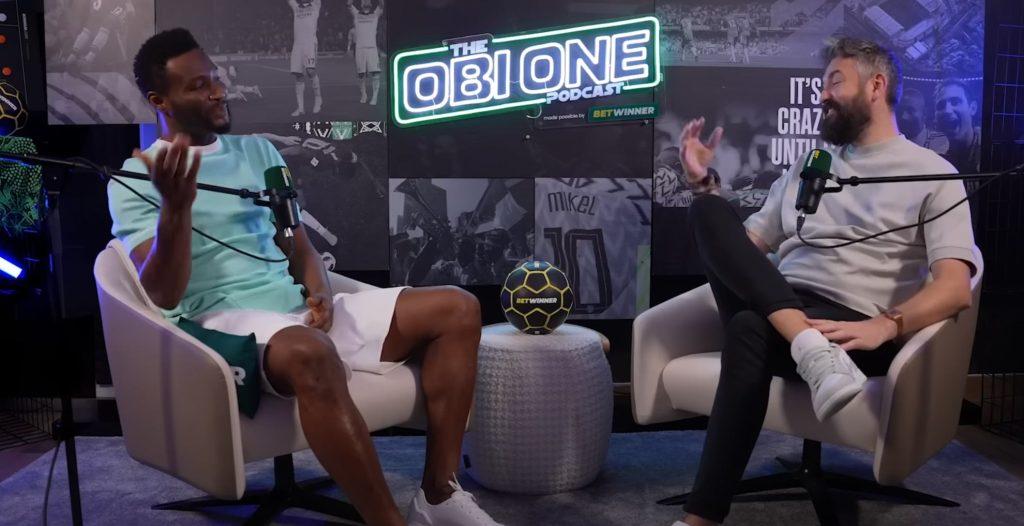
But Mikel could draw on his Chelsea old boys network when he started. Interviews with John Terry, Frank Lampard, Didier Drogba and others meant so much to the English football market. His co-host Chris McHardy has also made it easy for him to open up on details, prodding the information that fans want to hear.
The future for Mikel is interesting. He has evolved from manning Chelsea's midfield for over a decade to transforming into a talking head, being quoted worldwide, and getting through Osimhen's transfer to Chelsea. He shows what footballers can achieve after the game. Not everyone would become a coach or a scouting director, but there’s room for even the shy ones to become successful podcasters.


